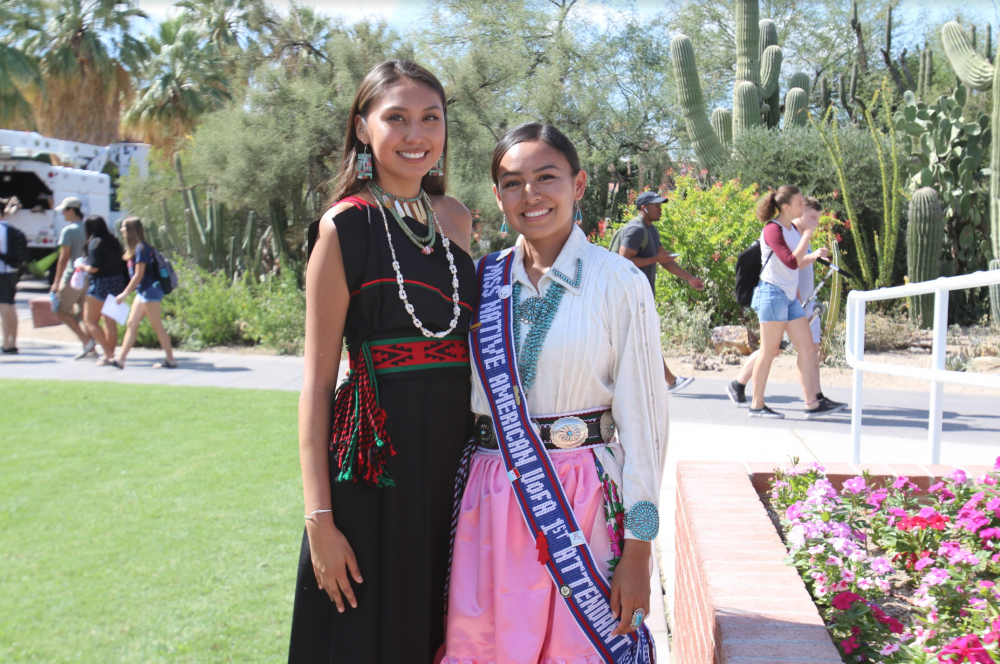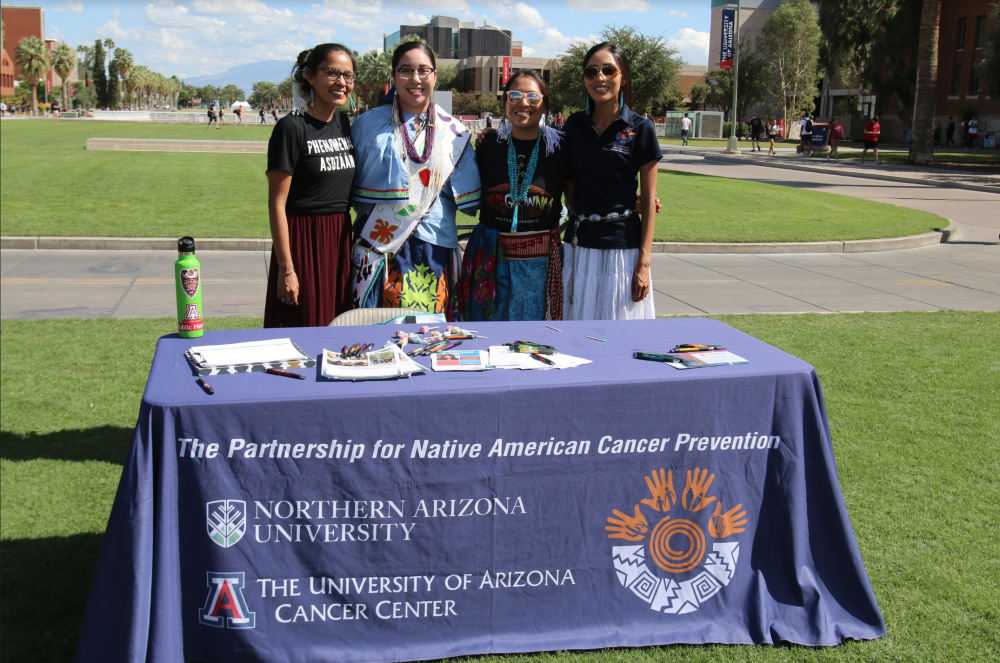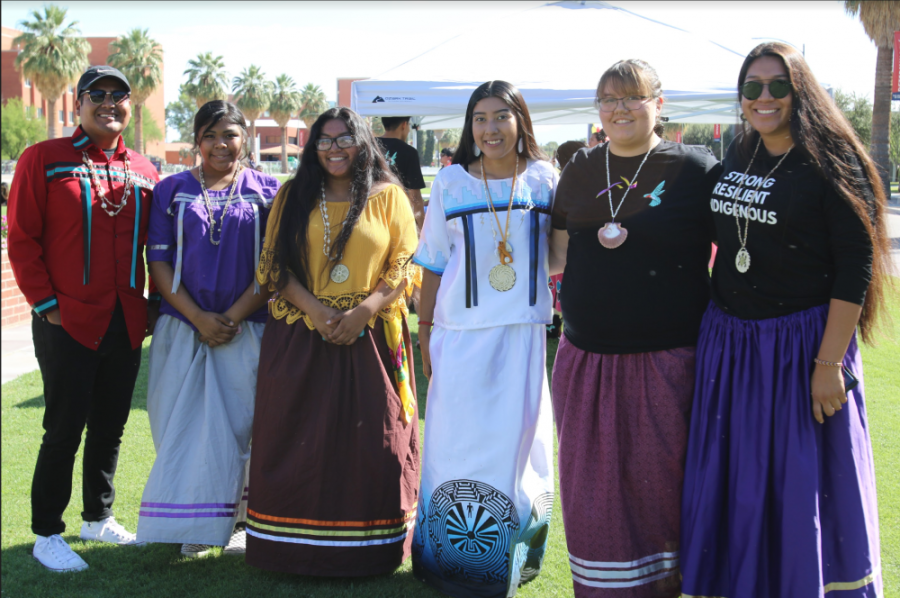The student organization Indigicat Student Association held an event on the UA Mall Monday to celebrate Indigenous Peoples’ Day.
Many of the organizations that represent Native American students on campus were invited to present at the event.
The organizations that participated were the Tohono O’odham Student Association, Alpha Pi Omega, the Native American Journalists Association UA Chapter, the Miss Native American University of Arizona Club, the Native Student Outreach for Access and Resiliency, the Indigenous Teacher Education Project and the Partnership for Native American Cancer Prevention.
Sophie Hungrywolf, a member of ISA and one of the lead organizers of the event, said that ISA has been celebrating Indigenous People’s day for at least three years.
“My student org[anization], Indigicats Student Association, we put this Indigenous People’s Day on every year and we invite all the Native American community, students, staff, different organizations that want to partner with us to just put this on,” Hungrywolf said. “It’s just really to show the campus, as well as outsiders, what the Native American community is like and our resiliency.”

Throughout the event, organizations had tables set up with information about themselves for those who were interested.
Leadership members of the attending organizations came up on stage to present themselves and explain what their organization does.
Ben Davis, the treasurer of the Tohono O’odham Student Association, came up and said that TOSA was founded in 2008 when the Tohono O’odham students didn’t feel they had a place to be authentically themselves.
There were performances throughout the day as well, including a performance by the Wildcat Nation Drum Group.
There were also many speakers who spoke about various issues affecting Indigenous communities, such as the Mexico border wall separating Tohono O’odham villages and mines desecrating culturally significant areas.
One speaker, Nicholas Wilson, said Indigenous People have not just survived the horrors of colonization in the past, but have to endure the persistent struggles colonization continuously brings in the present.
“We’re native people here. We’re on campus,” Wilson said. “We’ve endured colonization. We’ve endured settler colonialism. All the historic trauma, and I don’t like to call it historic because we think about in terms of the past, but we have to recognize that today we are also undergoing colonization as we stand here today.”

Wilson said that it has been often hard to study and talk about important issues for Indigenous People at a university that doesn’t prioritize Indigenous beliefs.
“What has been difficult as a graduate student is in many ways [is] I have to realize that I am studying settler colonialism in the heart of settler colonialism because these are where the ideas are made,” Wilson said. “This is about how professors come up with new ideas, researchers go into communities, do research, research on people and as a result of that they colonize their researchers, the community they go into. These are all things we don’t talk about because, again, settler colonialism is something we don’t acknowledge. It’s everywhere we go. It affects our understanding. Yet we don’t talk about it. I try to bring it up in class, but then it’s something that gets hushed down.”
RELATED: College of Law’s program emphasizes tribal law and human rights work
Hungrywolf said that one of the reasons it is important to celebrate Indigenous Peoples’ Day is because it is reclaiming the day that many celebrated as Columbus Day, since that original holiday doesn’t hold to correct history.
“There was Indigenous People before, so we just want people to be aware of the correct information, the correct history and just to show how much we have endured in the past and how we’re thriving,” Hungrywolf said. “Especially at a university level, like how there is a lot of students and a lot of organizations and that we’re just showing our resiliency through this day.”
Follow Jake Toole on Twitter








